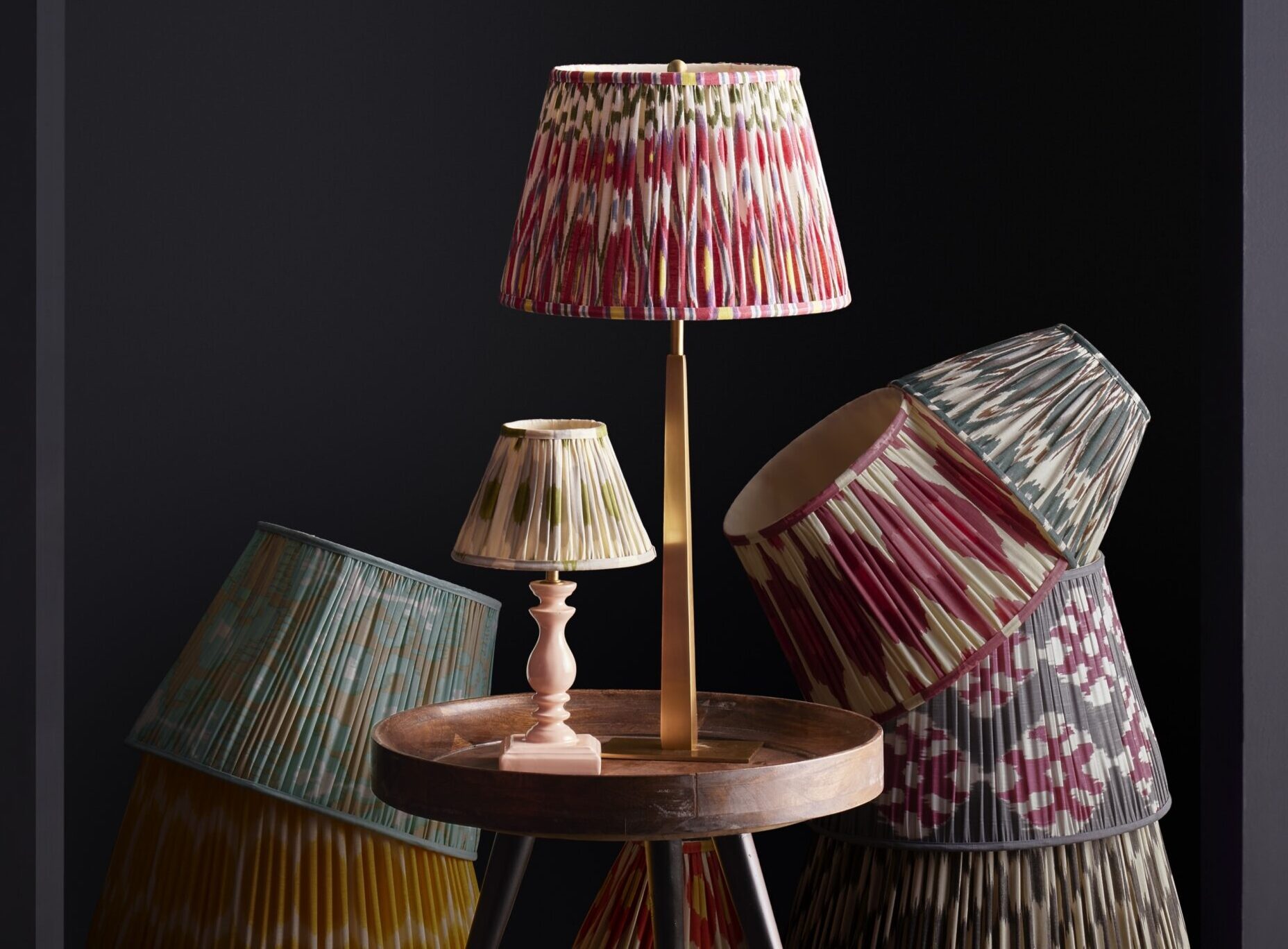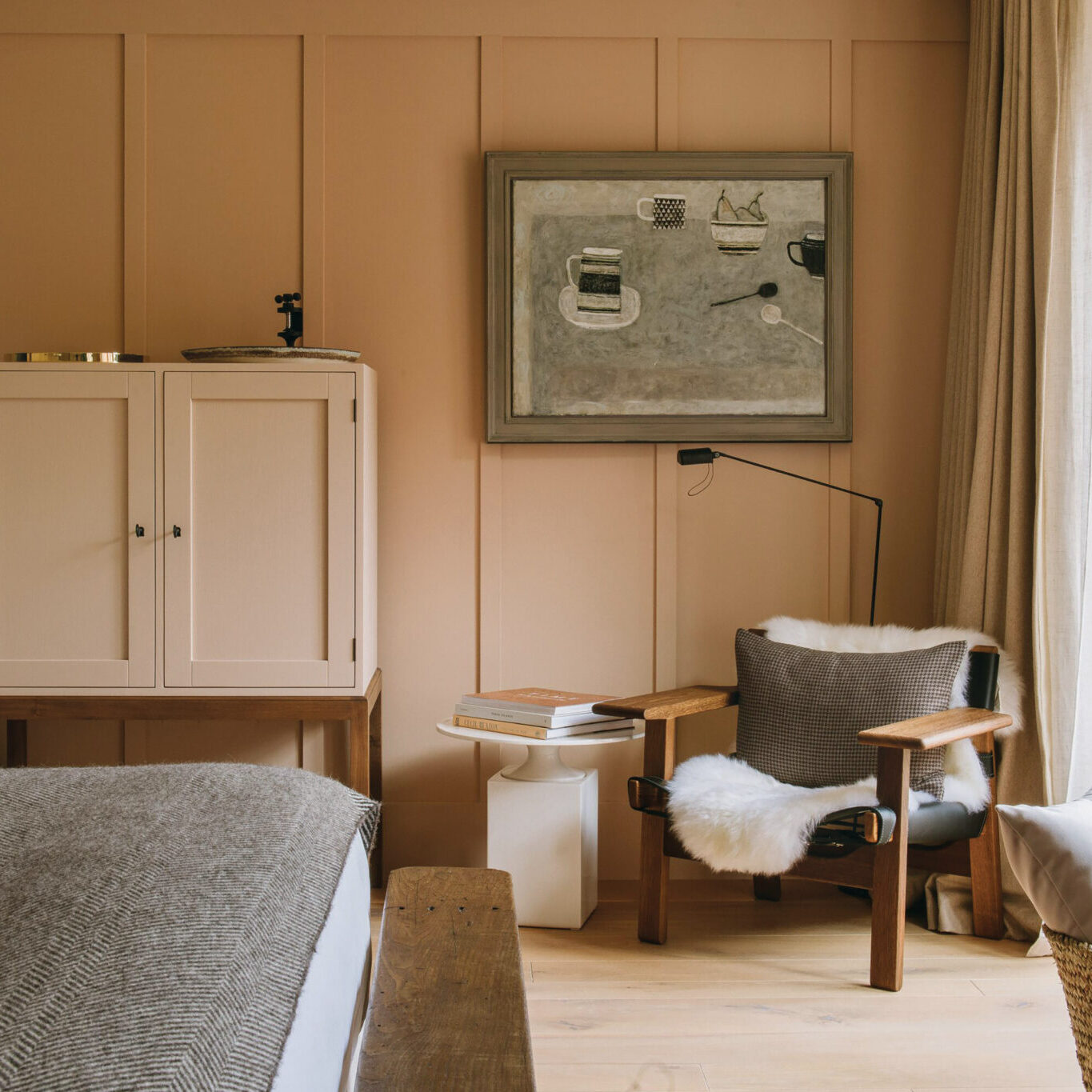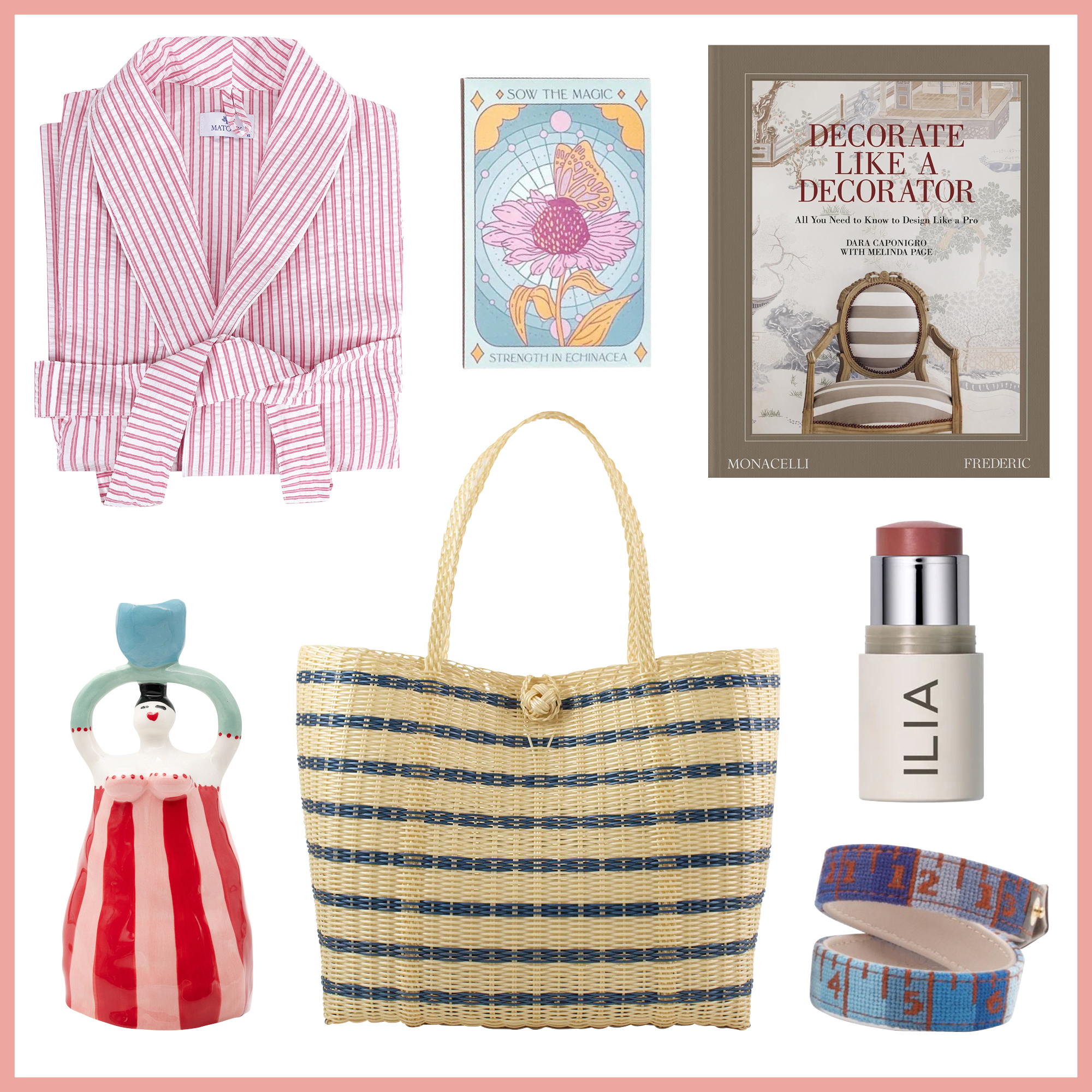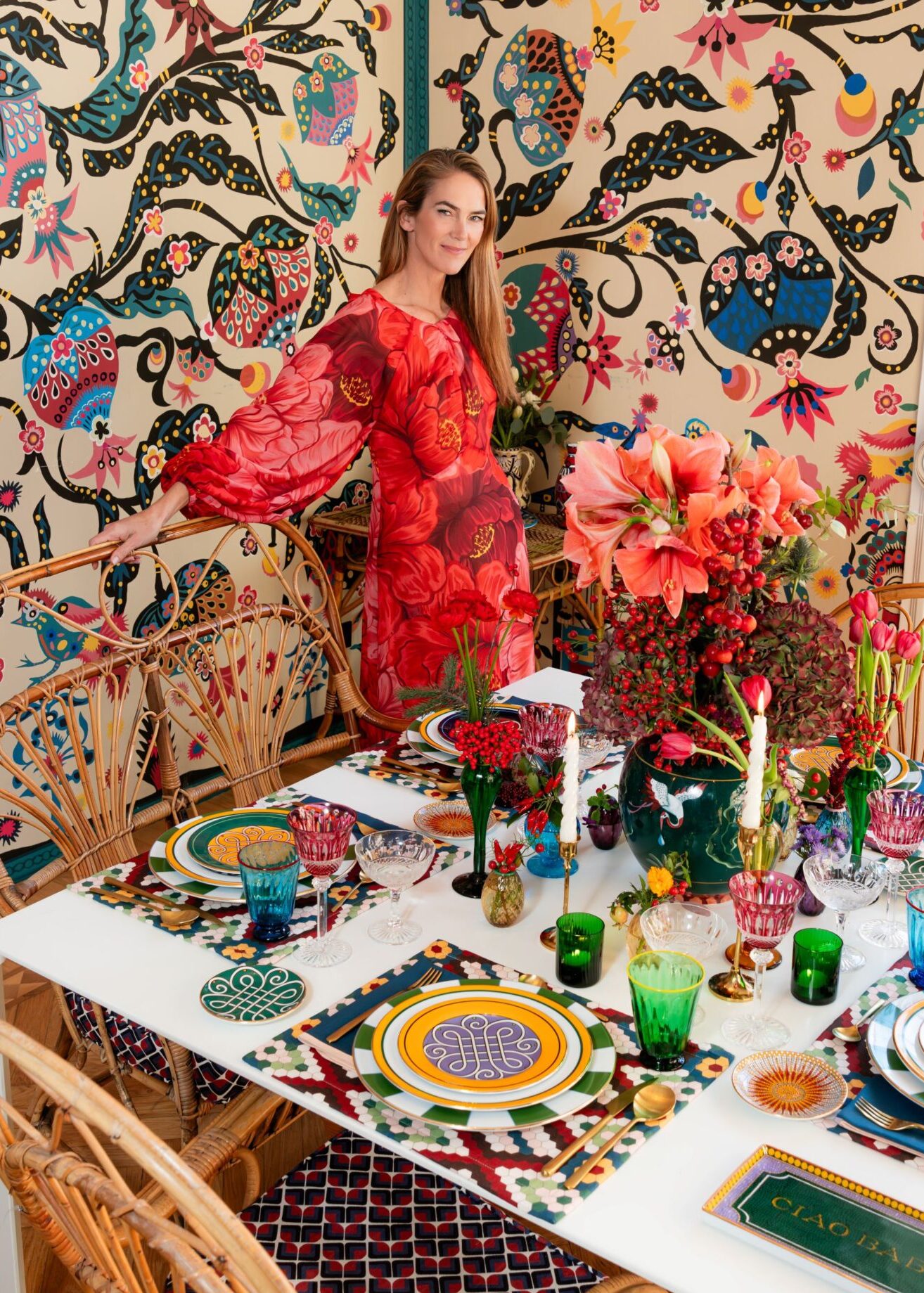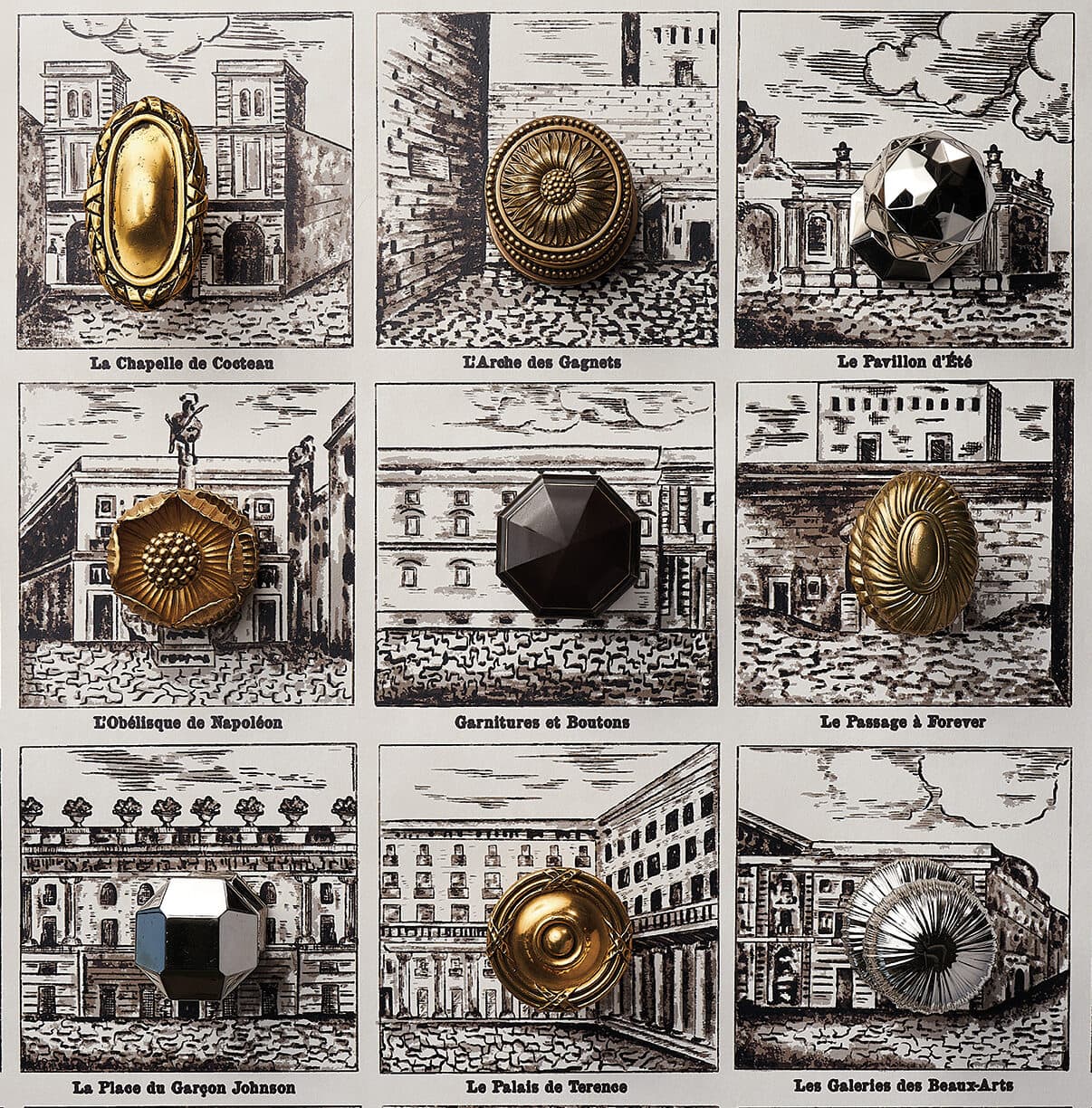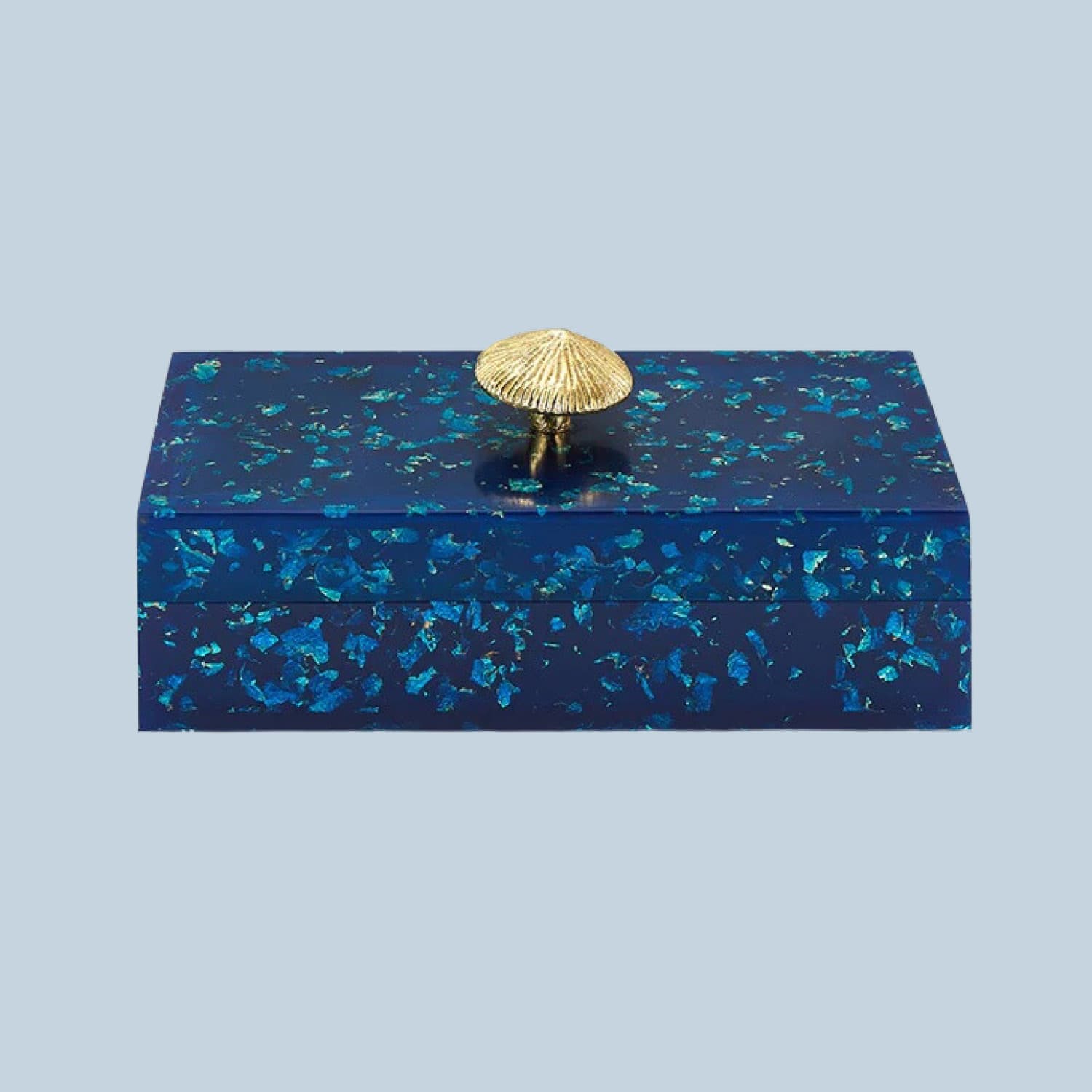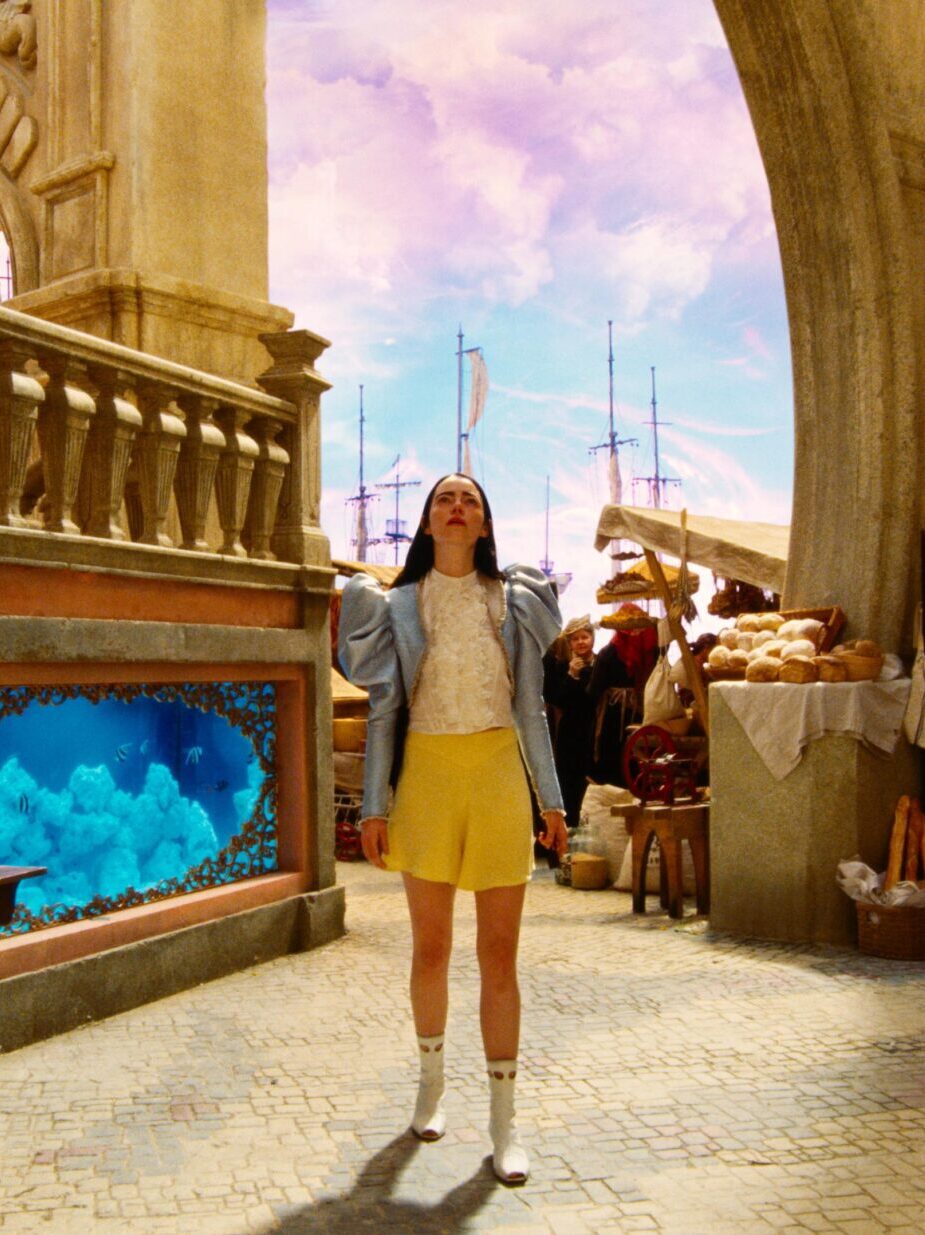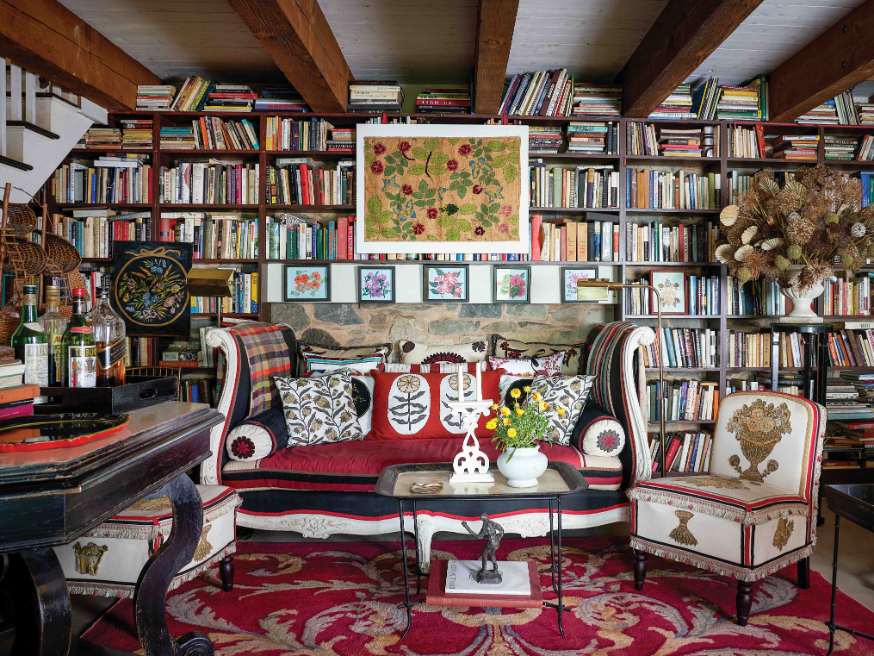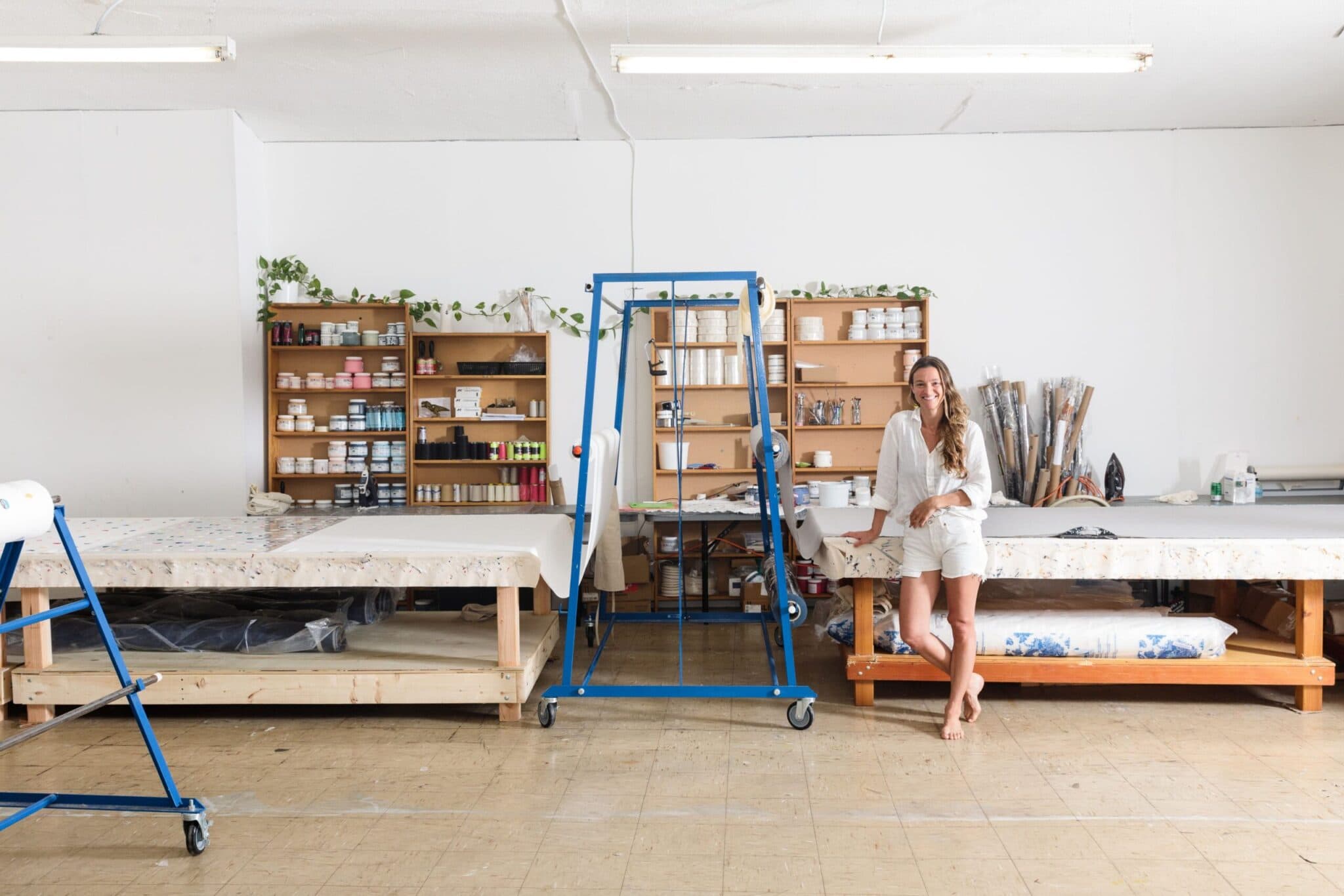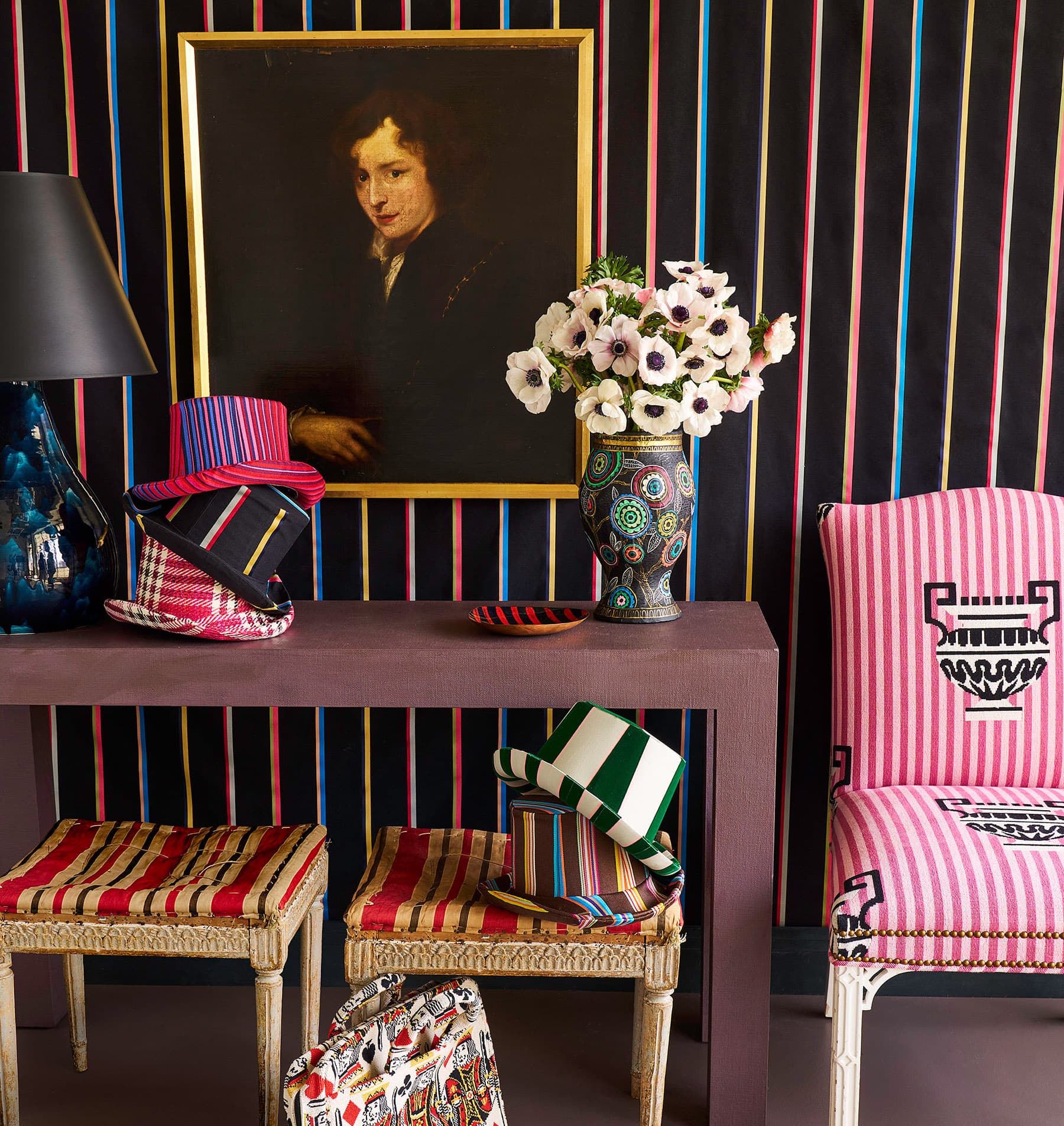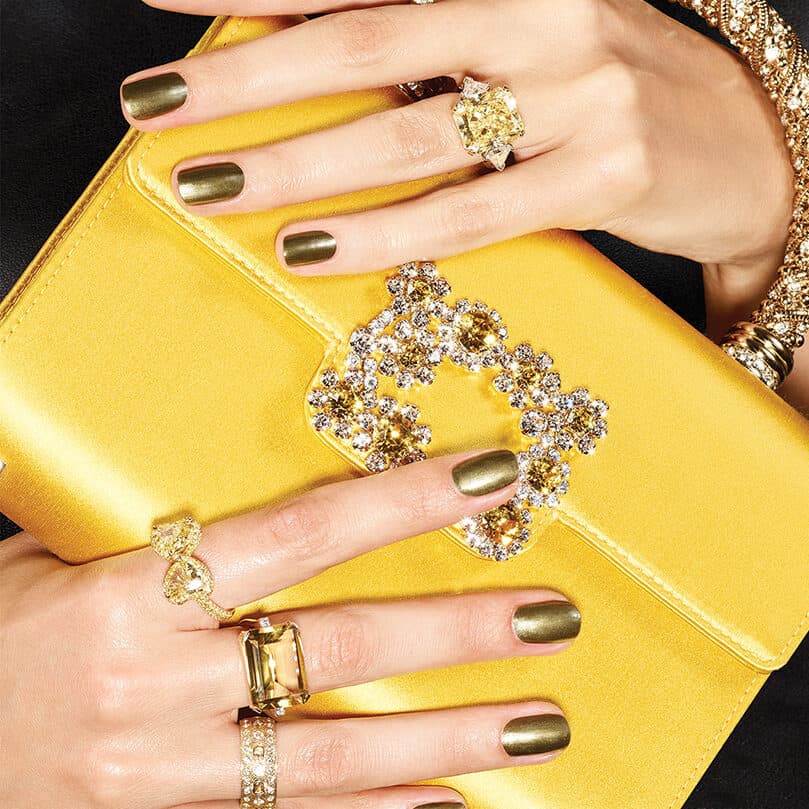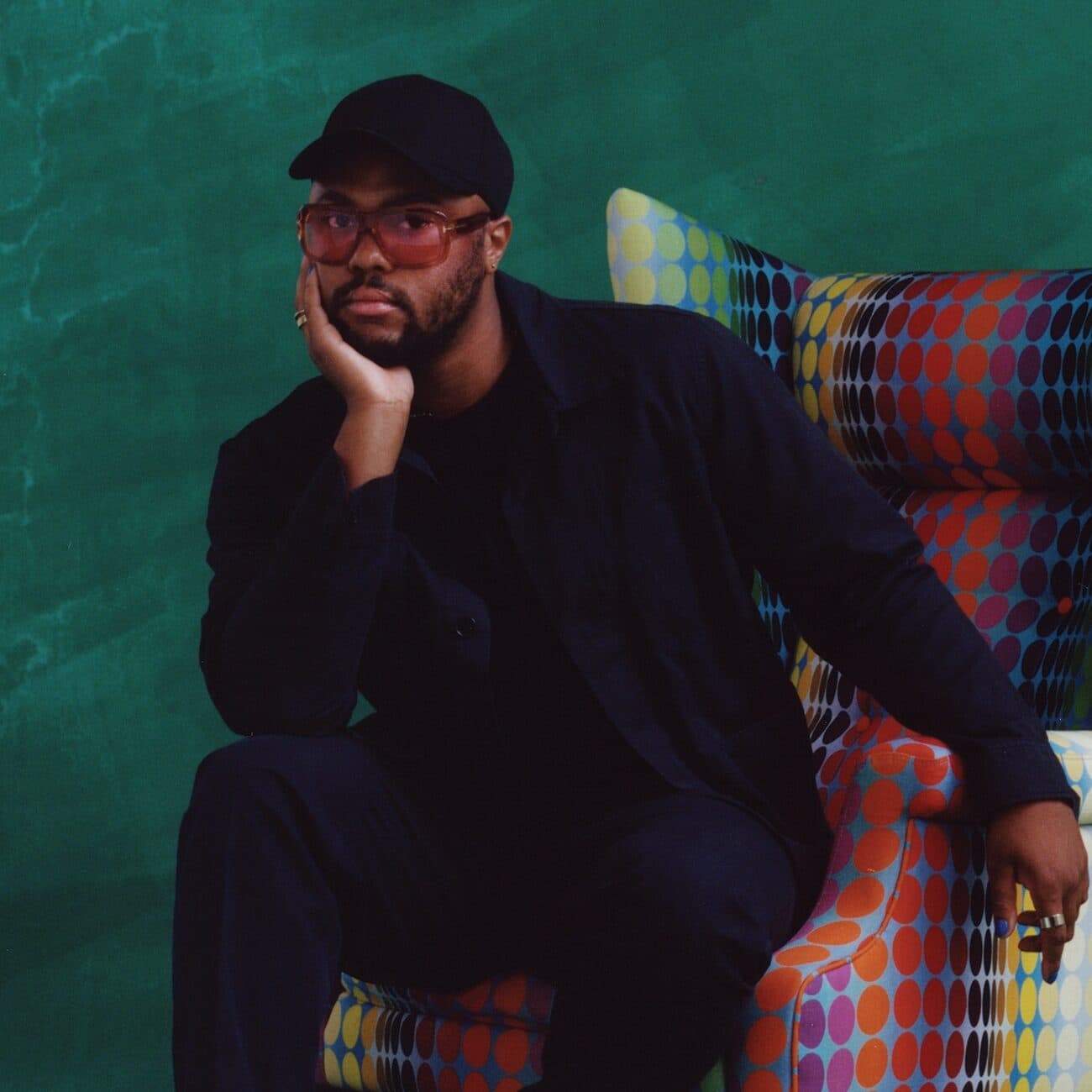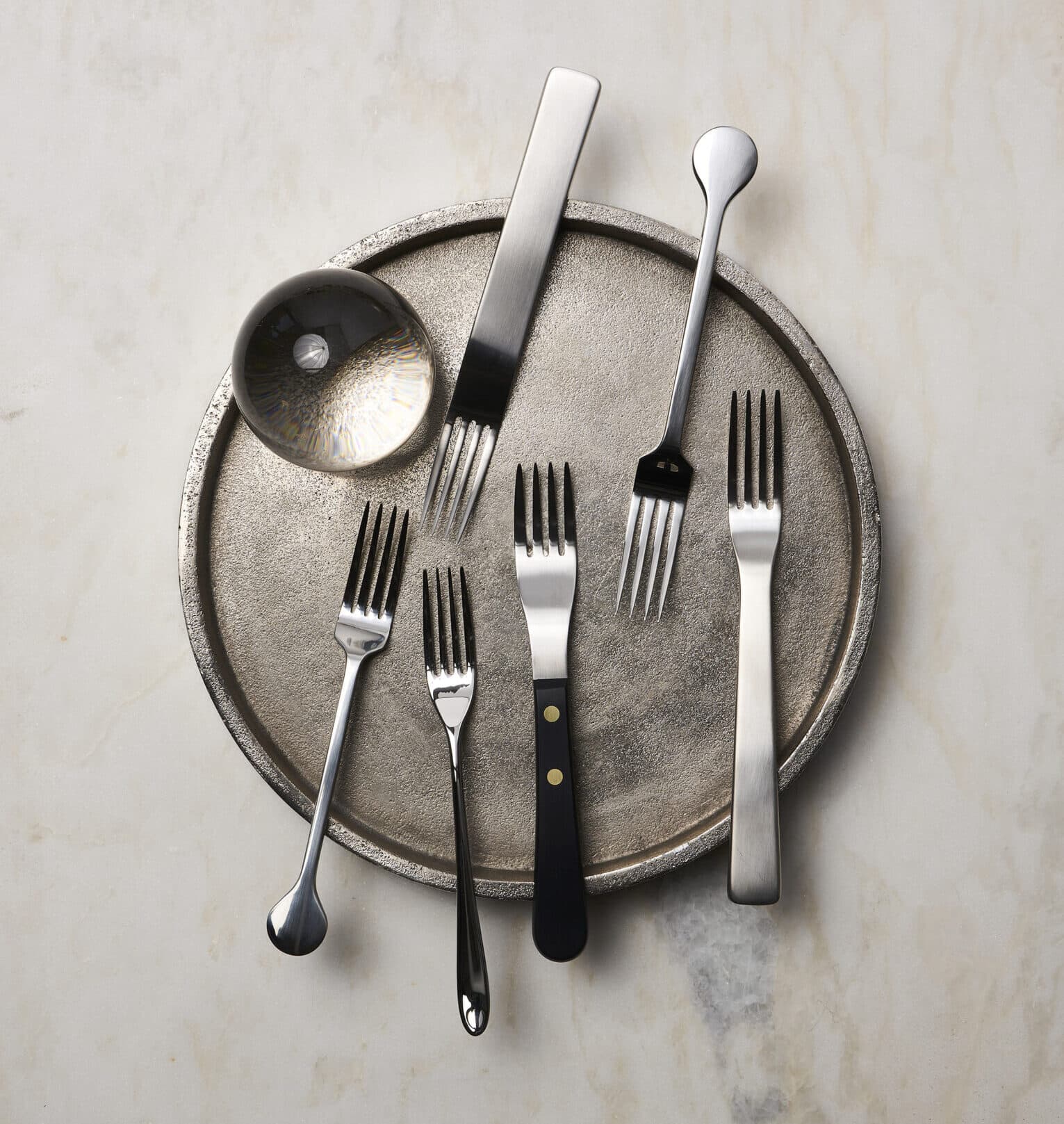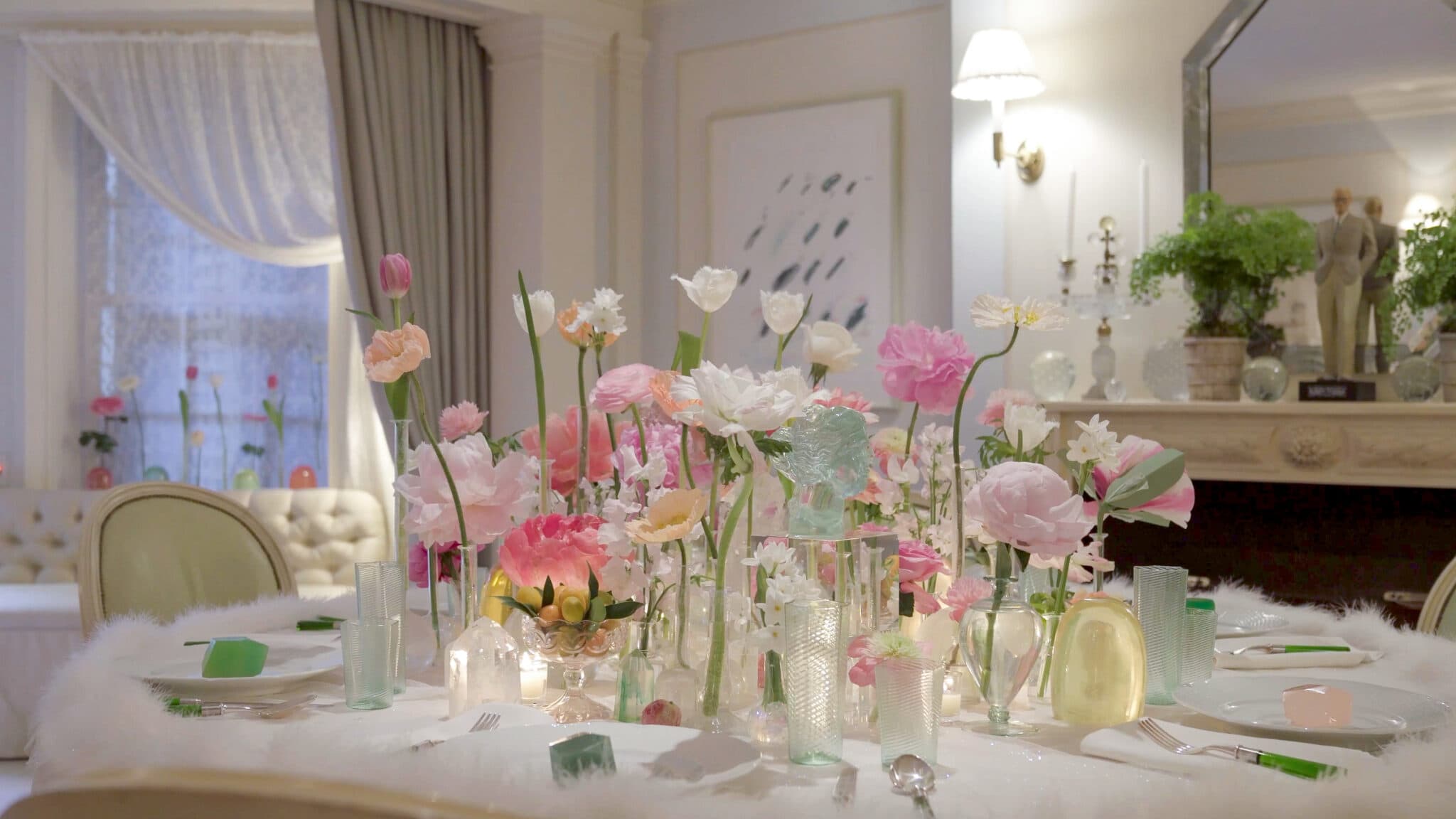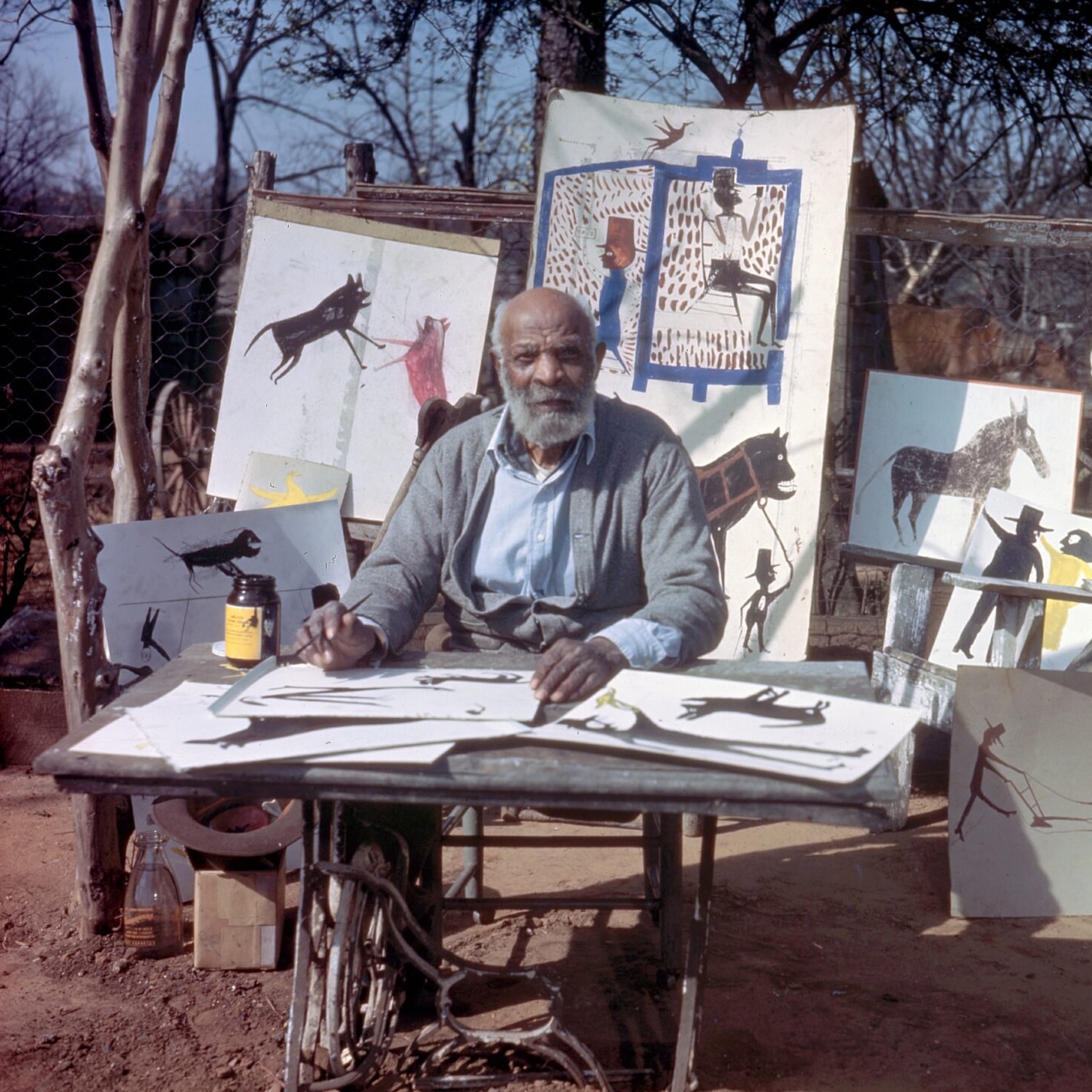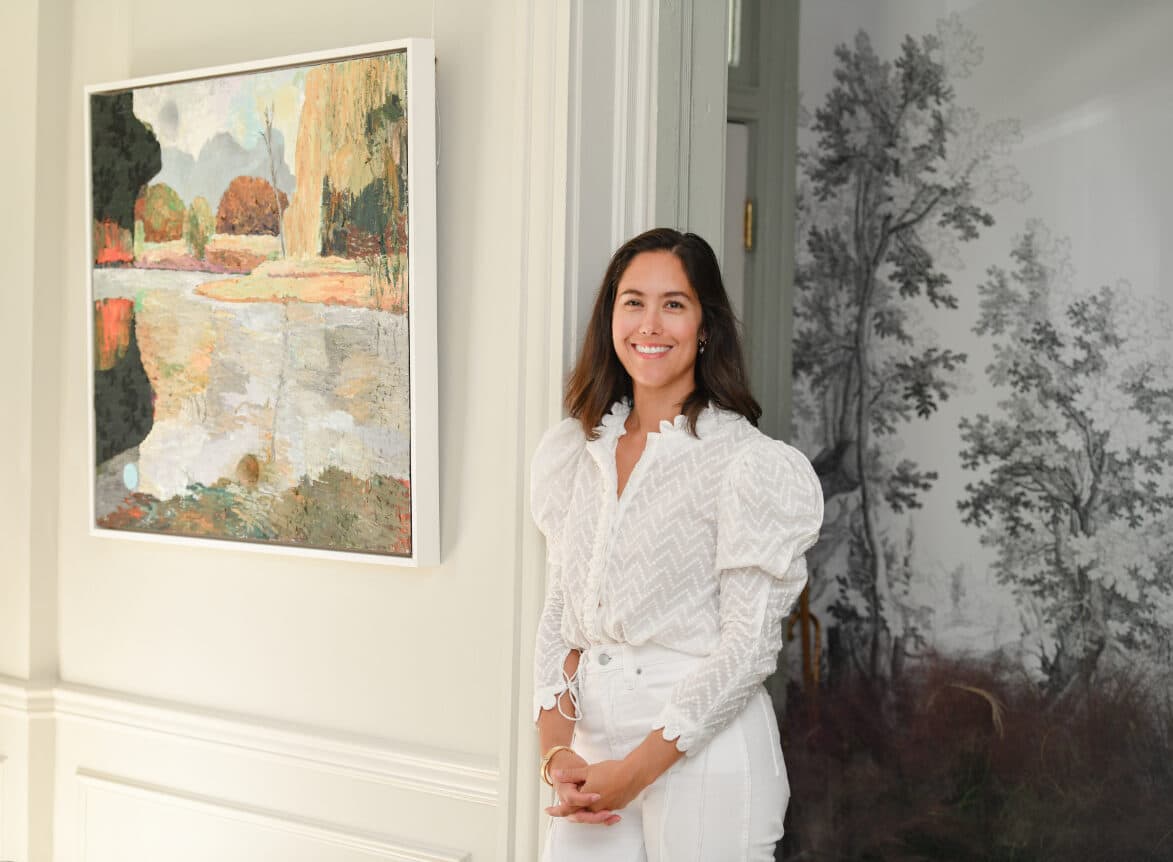With collaborations across fashion and interiors, Brooklyn-based textile artist Caroline Z Hurley is skyrocketing in stature while maintaining a distinctly grounded perspective. At her factory in New Bedford, Massachusetts, her approach to textile production is treated the same as an artistic production, where the unique quality of each block and color is thoughtful and deliberate. We spoke to the fiercely motivated designer for a deep dive into her process, the challenges and joys of owning a business as a mother, and how she tapped into new sources of creative energy for her newest collection for Schumacher, coming next year.
Where do you find inspiration for your art and textile designs?
I used to find inspiration through travel, color exploration, and new designs, but it’s changed since becoming a mother. Now, anything and everything around me at any point in time can serve as inspiration. I’ve found activities I do with my children and the endless discoveries of motherhood are ripe for ideation. Self-imposed boundaries help me stay motivated and push me to be more creative.
-
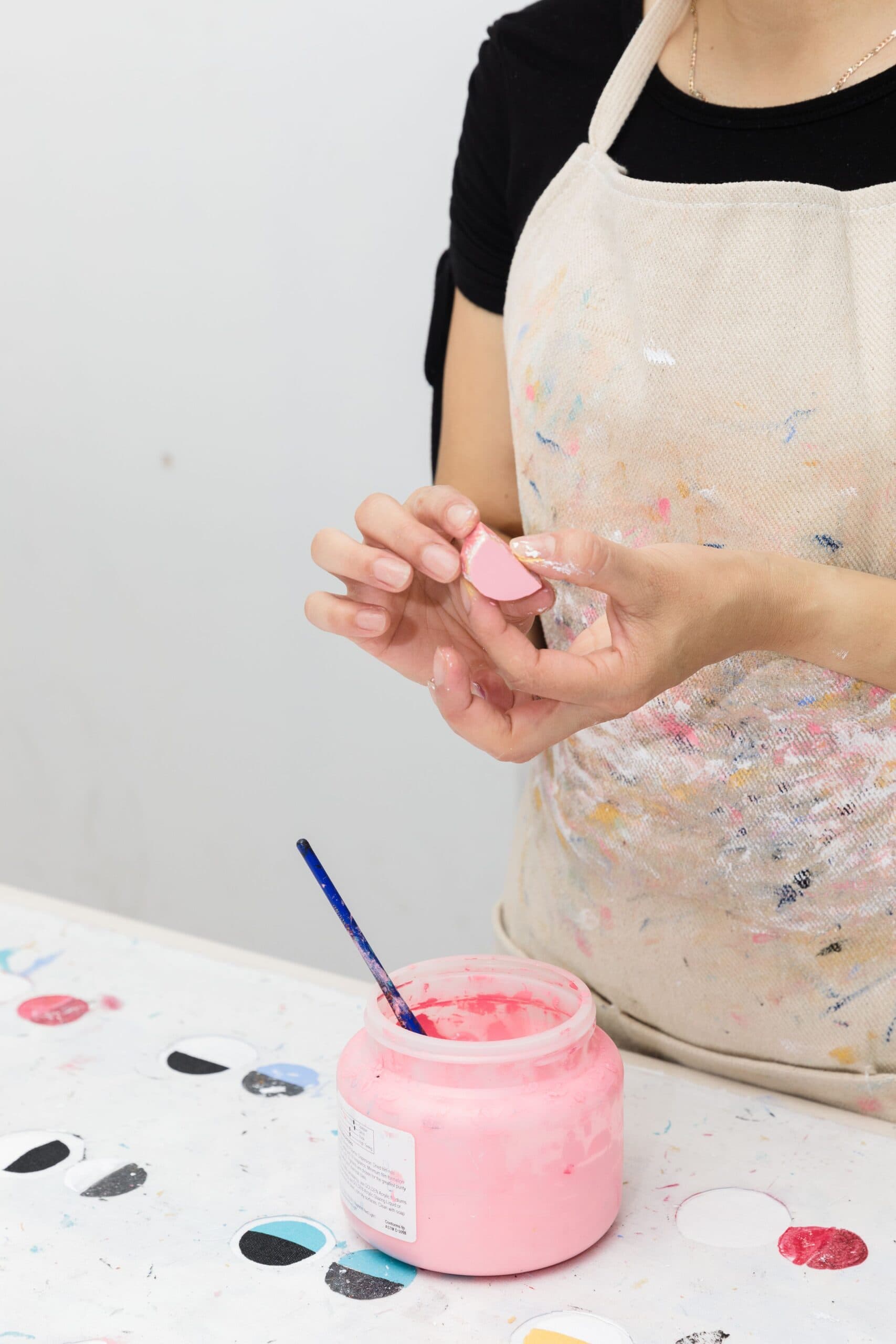
Caroline Z Hurley’s Joshua Tree fabric is hand-blocked with semi-circle stamps.
Elizabeth Cecil -
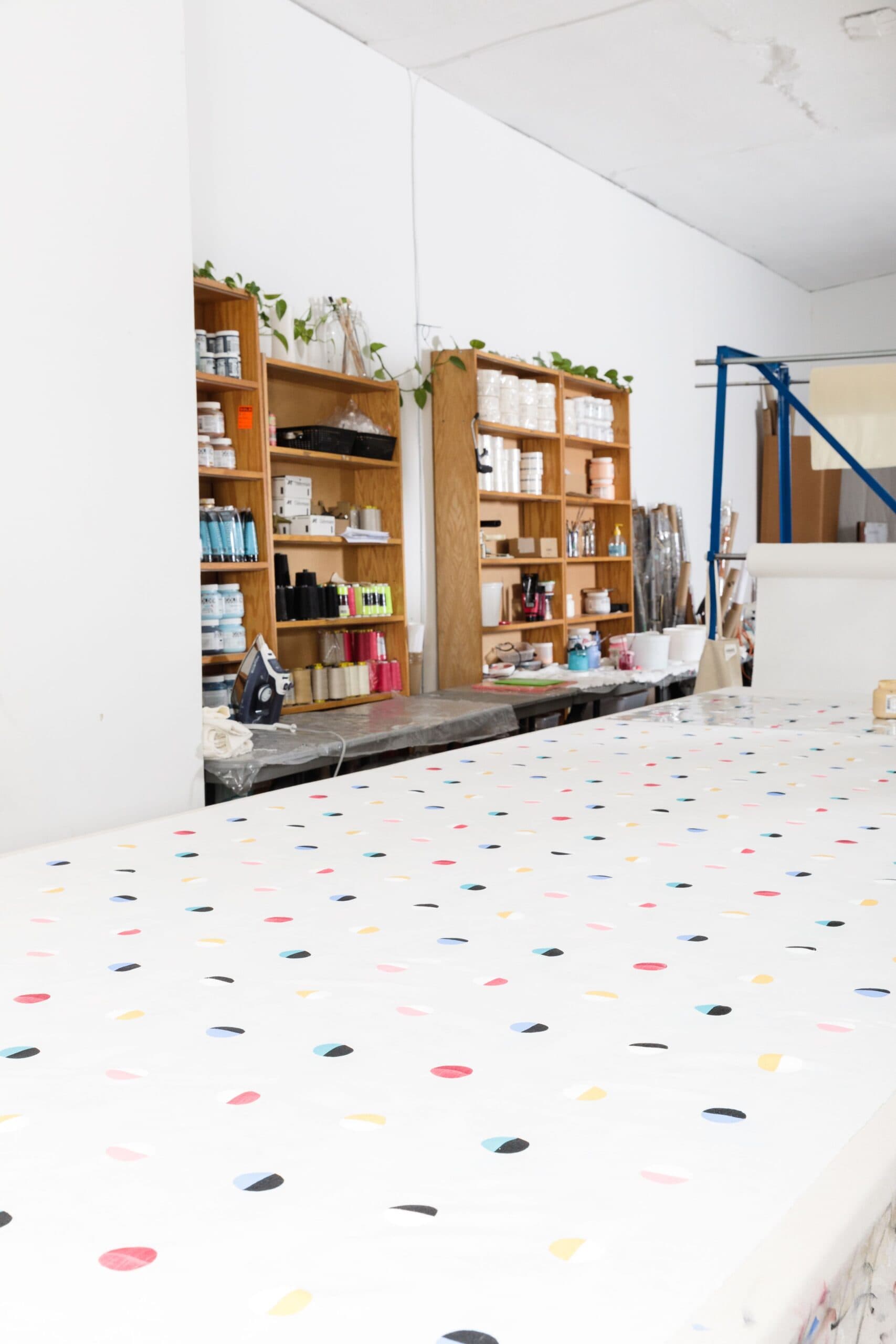
Hurley’s approach to textile production is treated the same as an artistic production where the unique quality of each block and color is thoughtful and deliberate.
Elizabeth Cecil
Were you surrounded by more traditional or modern design growing up?
My parents are from St. Louis, so our house was more eclectic, modern pieces mixed freely with heirlooms. Of course, growing up in the South, I couldn’t avoid the more traditional styles. I was never moved by busy florals or vibrant trims and tassels on lampshades, but they are very familiar to me. I’ve always gravitated towards cleaner designs. I remember there were these plates we had growing up with just one line around the edge and they were my favorite—my mother still has them!
-
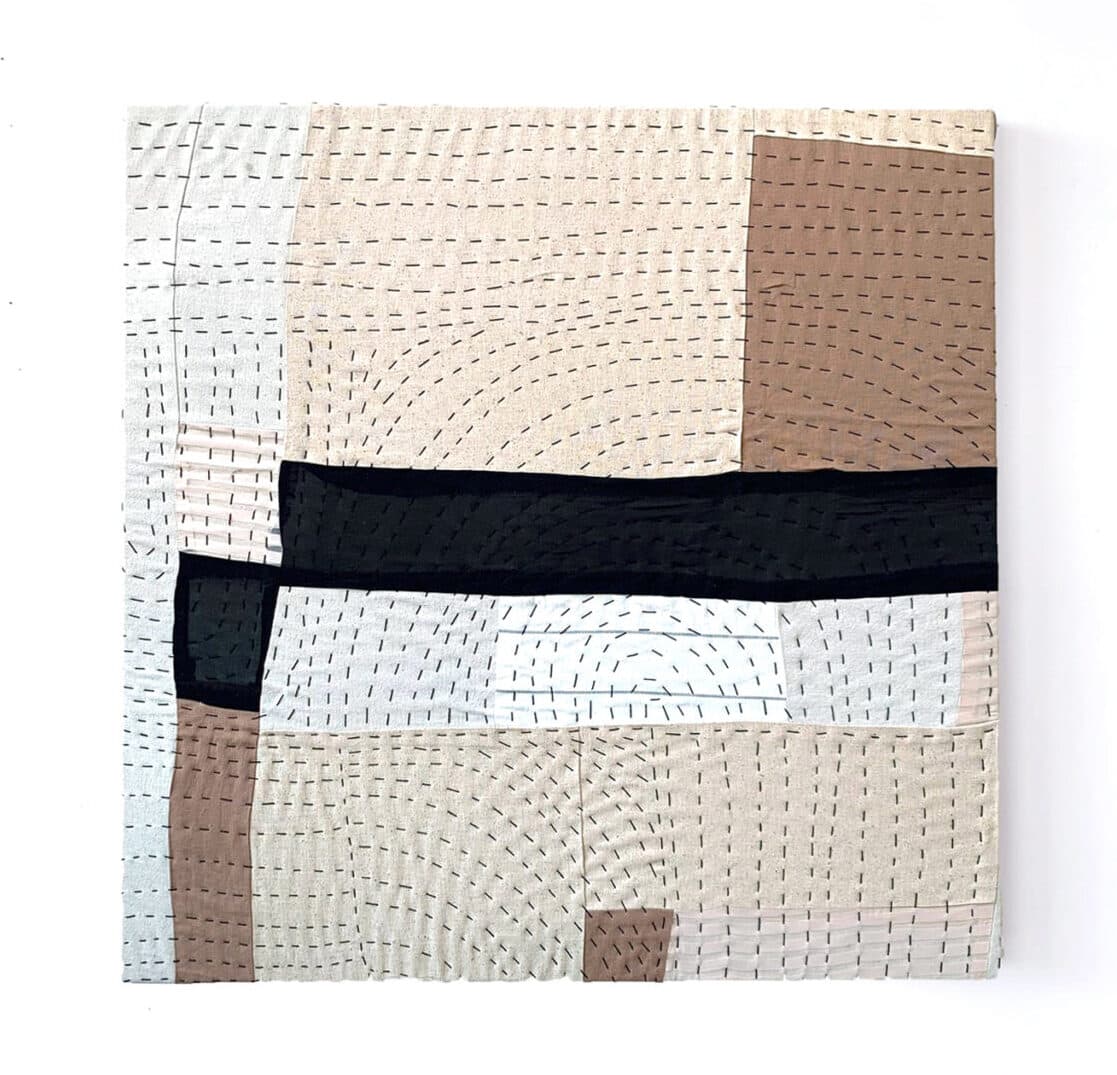
Hurley’s recent body of work stitches together pieces of scrap fabric into an abstract formation she then stretches over support.
Elizabeth Cecil -
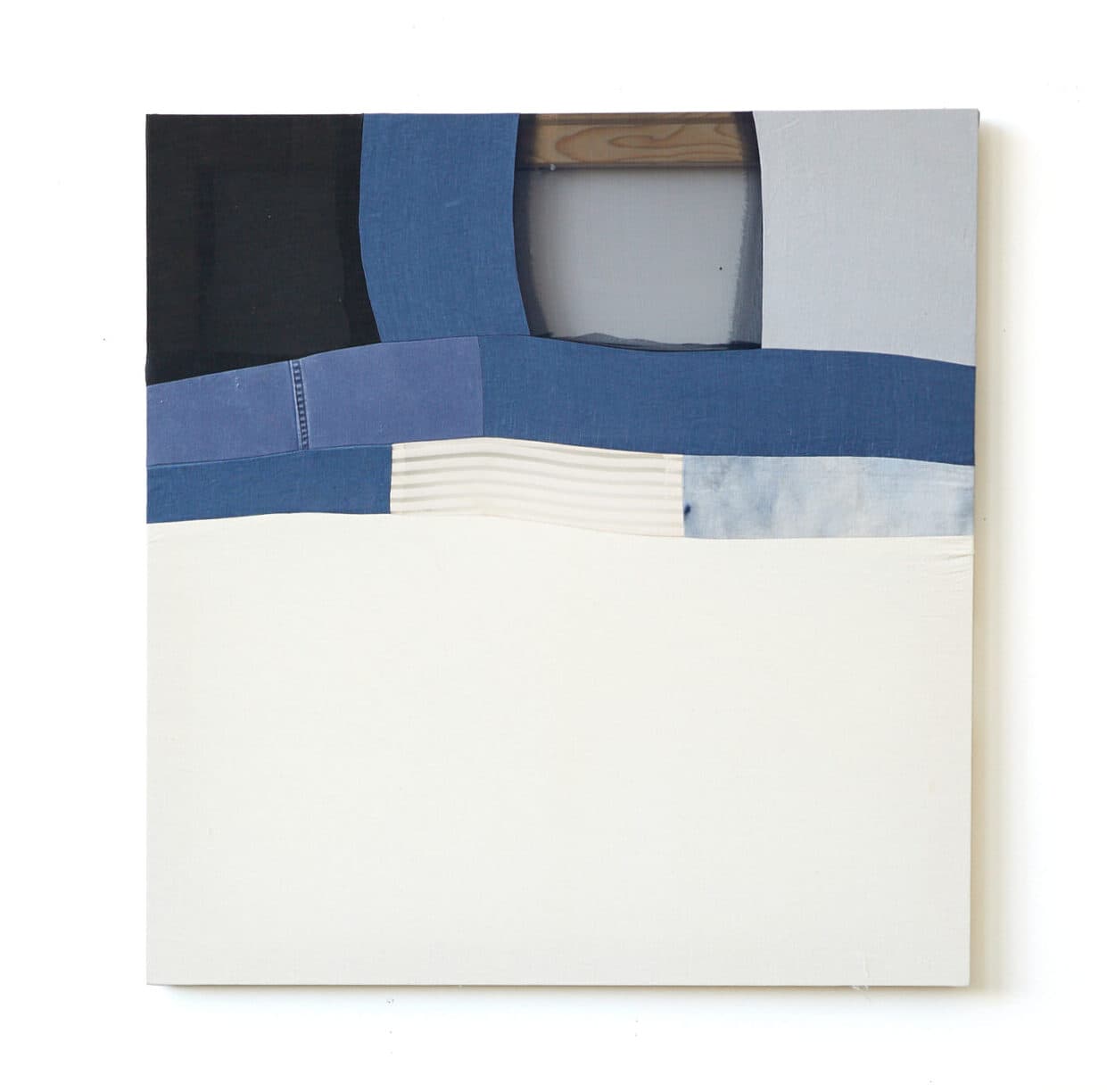
Combined, the fabric remnants form a cohesive whole—just as memories form a personal history.
Elizabeth Cecil
How has your fine art education defined your approach to textiles?
There’s a certain way I look at things that is heavily influenced by artistic training. I design things for people to buy and put in their homes, but the starting point is painterly expression. I don’t follow trends; fine art is about what your authentic intuition is telling you to express. For me, it is a personal expression of my shifting perspective as I enter new phases of my life.
Have you always been motivated to create?
I always had a crayon, marker, or brush in my hand. Even my mom will tell me stories about how there was never a moment where I wasn’t making something. Whether traveling or at a restaurant, I always had something to draw on. Every moment or my life I’ve gravitated towards art. So it made sense to go to art school to continue that.
-
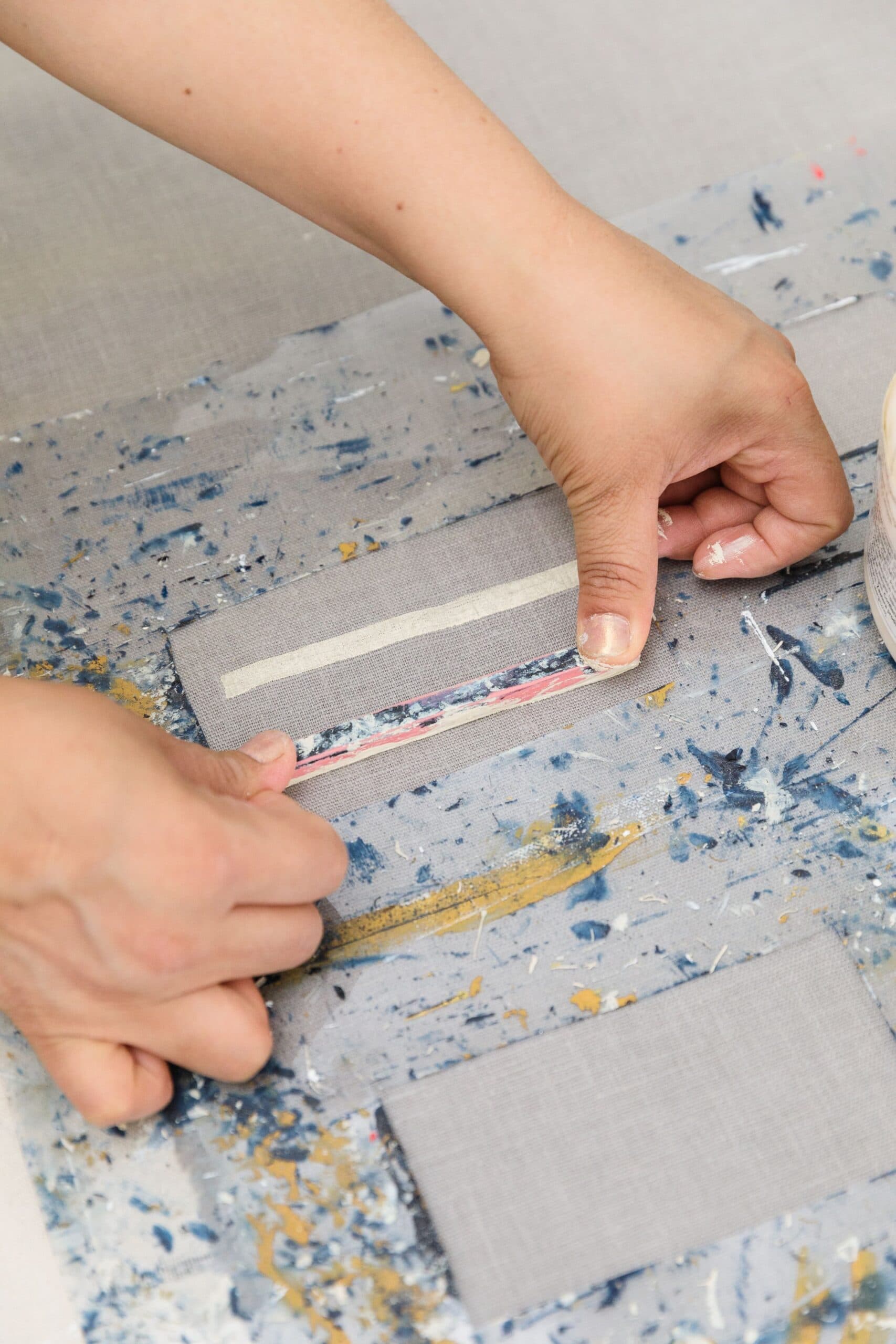
An artisan at the factory prints Hurley’s Oaxaca fabric.
Elizabeth Cecil -
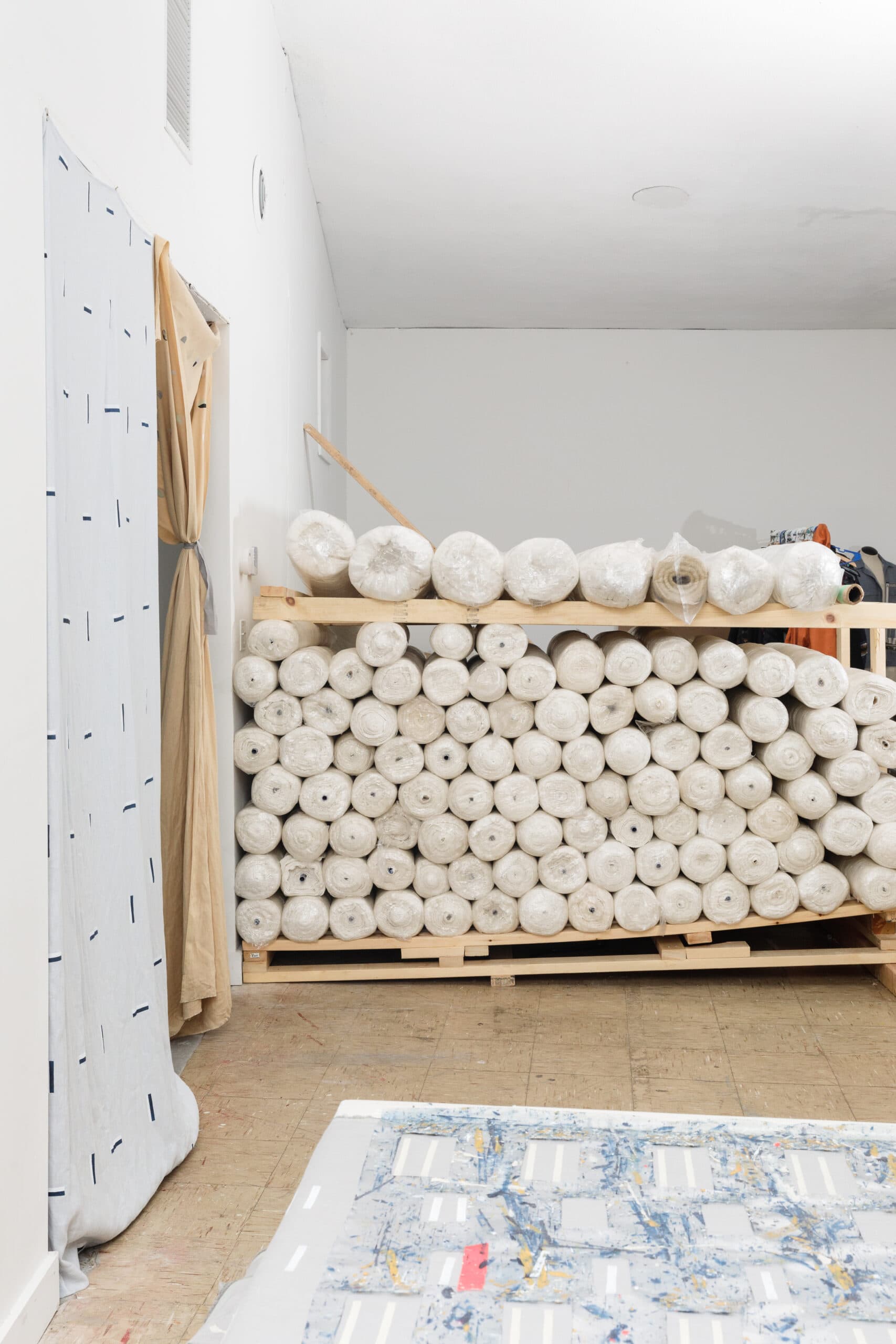
Fabrics are laid out to dry before being rolled up.
Elizabeth Cecil
How has motherhood shifted your artistic style?
It’s still consistently minimal—very simple, nothing ornate. However, it’s now looser and freer and more creative, actually. I started stitching together hand-dyed fabric pieces and embroidered vintage lace after my daughter Penny was born and then it just exploded into a new style for me. My latest body of work is about what it felt like to grow up in the South. In the past, I explored texture and history through laundry lines. Now, the story is childhood and the moments and memories we stitch together over the years.
How do you juggle your business and your artistic practice, especially with two young kids?
Being a working woman and having children is very challenging because you always feel like you’re failing—like you’re never acing both at the same time. I always feel like one of them is taking a hit and it’s a constant struggle to be okay with that. There’s not enough support for women who are trying to do both. This phase of motherhood is so precious and sweet, and I don’t want to wish it away, but I do want to show my kids that it’s important to stay true to your passions. My mother was a full-time mom, but always had things she was pursuing at home or in the community. There are infinite ways to be a mother, but that was the most important lesson I learned from her.
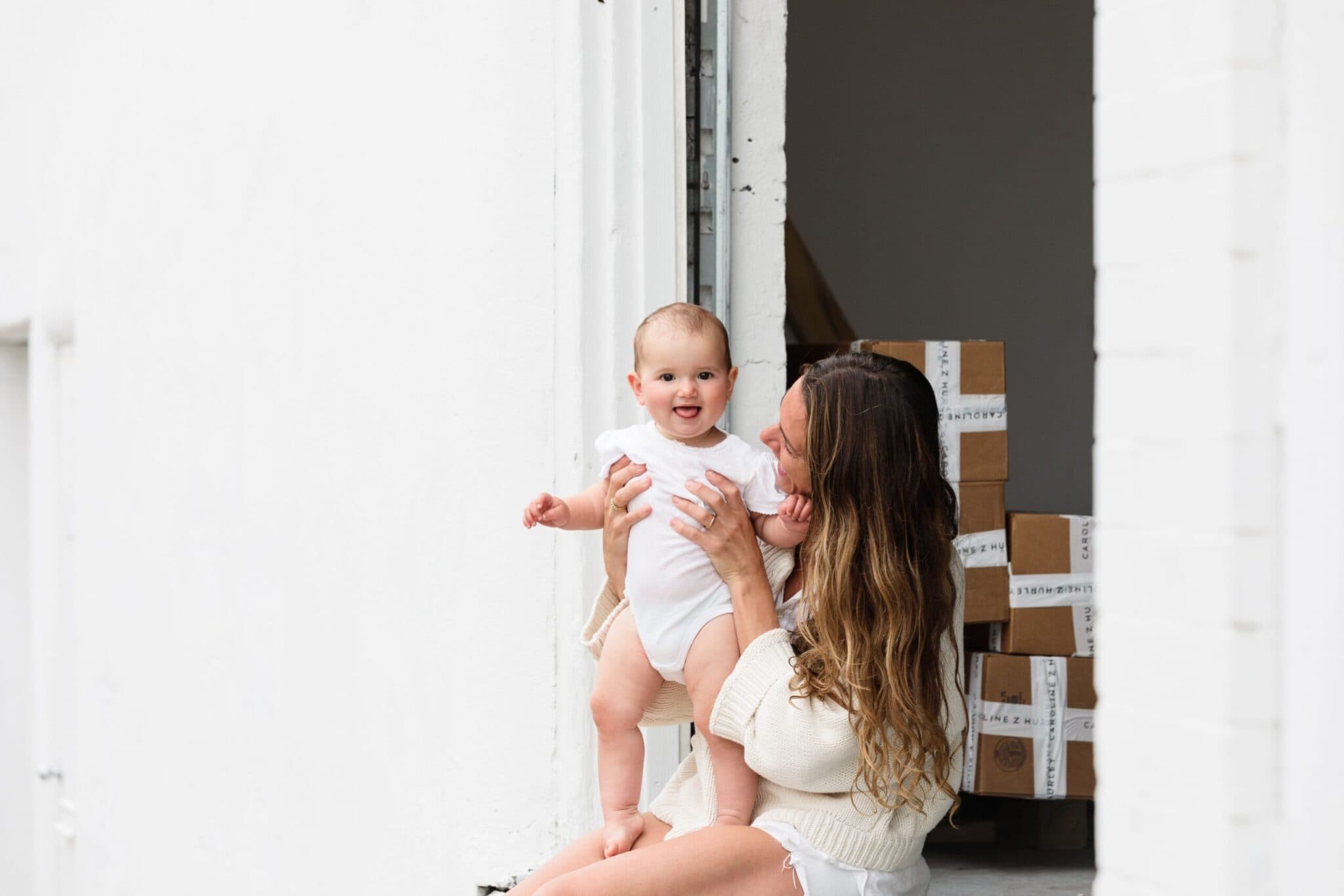
Hurley and her youngest sit on the loading dock at her factory. Balancing motherhood and running a business has taught Hurley that sharing her passions with her children is paramount.
Elizabeth CecilHow do you approach creative blocks?
Funnily enough, I haven’t had a creative block in so long because I don’t have time! When I do get the time to create things, I’m so excited it just flows out with abandon. Prior to having kids, I had the privilege of walking away and letting it sit before returning with a new, fresh perspective. I look forward to the next time I have a creative block because it’ll be interesting to see how I manage it.
Are there any new mediums you would like to explore if you had the time?
I love exploring other mediums, but I always come back to canvas—albeit with a restored vision. I’m really excited about these new stitched paintings, and it has inspired me to dive into the world of embroidery. I try to listen to my gut when deciding where to go next.
What would be your dream collaboration?
It would be a dream to design a hotel from start to finish, including art, textiles, and furniture. Everything would be handmade and custom to the space. In a world where technology is becoming increasingly pervasive and pulling us away from being present, art has the power to bring people back to what is in front of them. I know artificial intelligence is going to change everything and who knows what that next chapter will be, but for now, I would like to help ground people through their environment.
Shop Caroline’s Collection
-
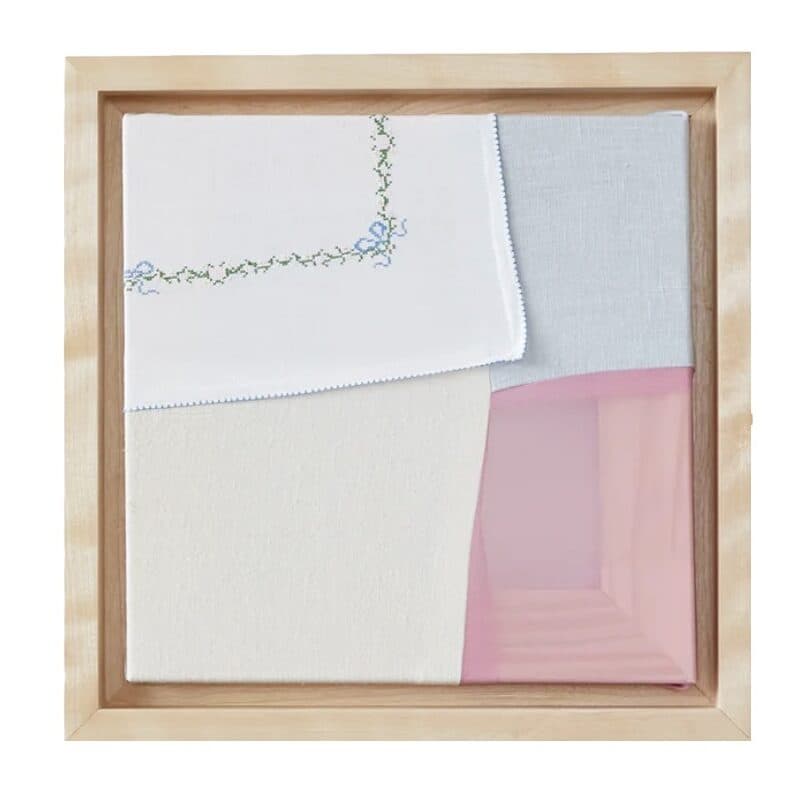
"Sunday School" by Caroline Z Hurley
12″ x 12″, mixed media on collected vintage fabrics. $895, carolinezhurley.com
-
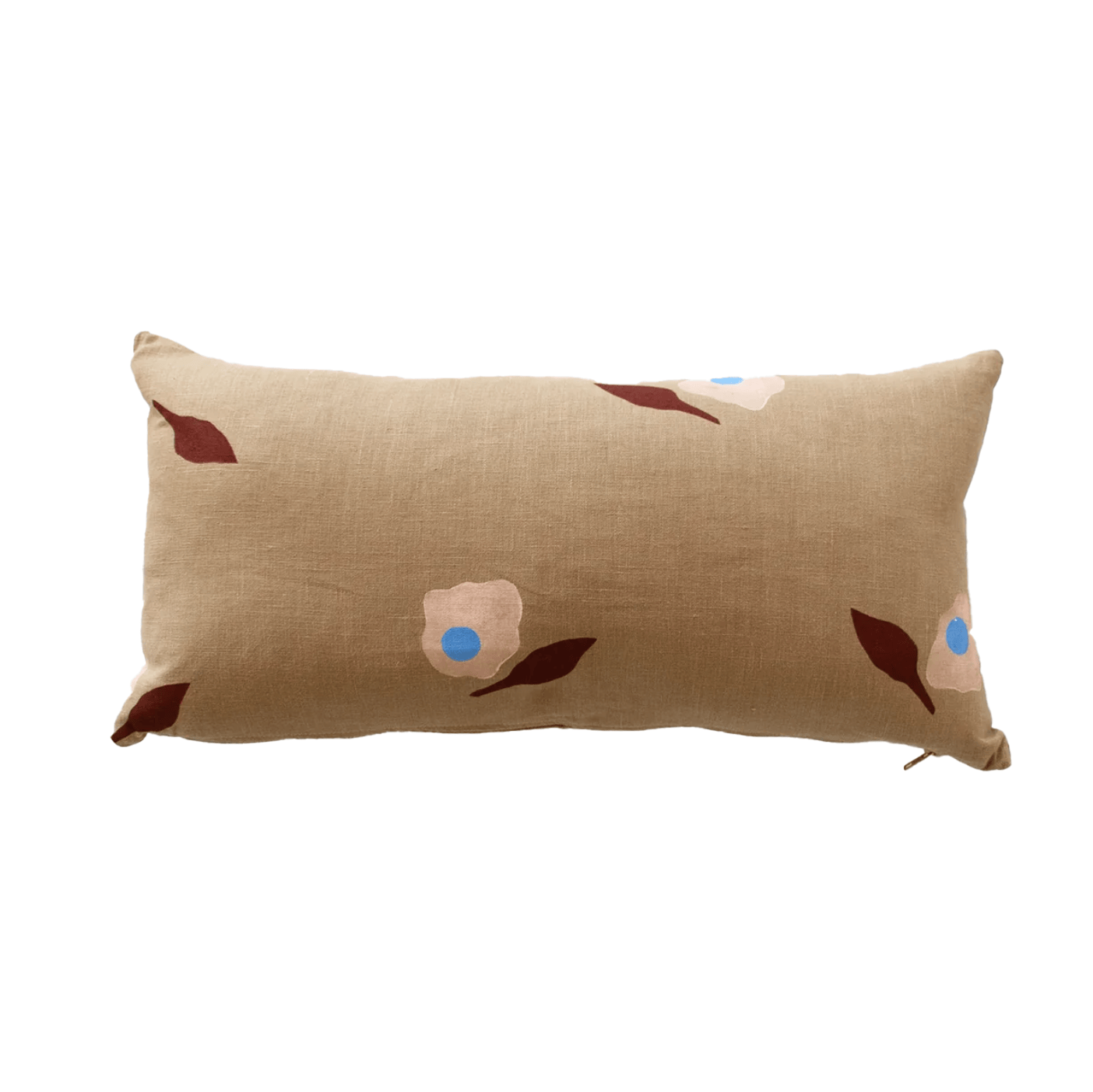
Aquinnah Camel Bolster Pillow
$195, carolinezhurley.com
-
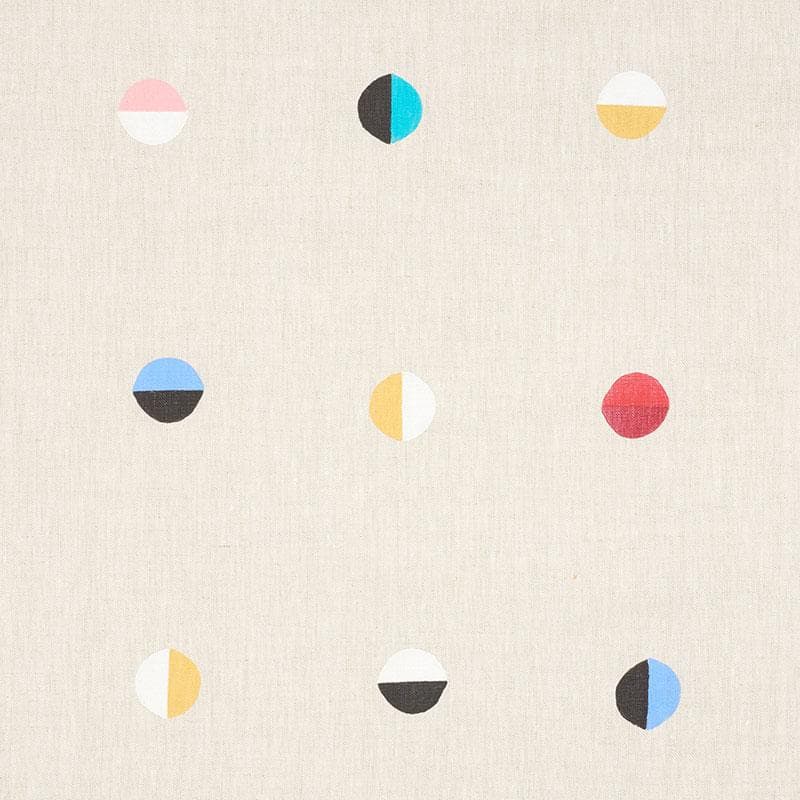
Joshua Tree Fabric by Caroline Z Hurley for Schumacher
$297 per yard, chairish.com
-
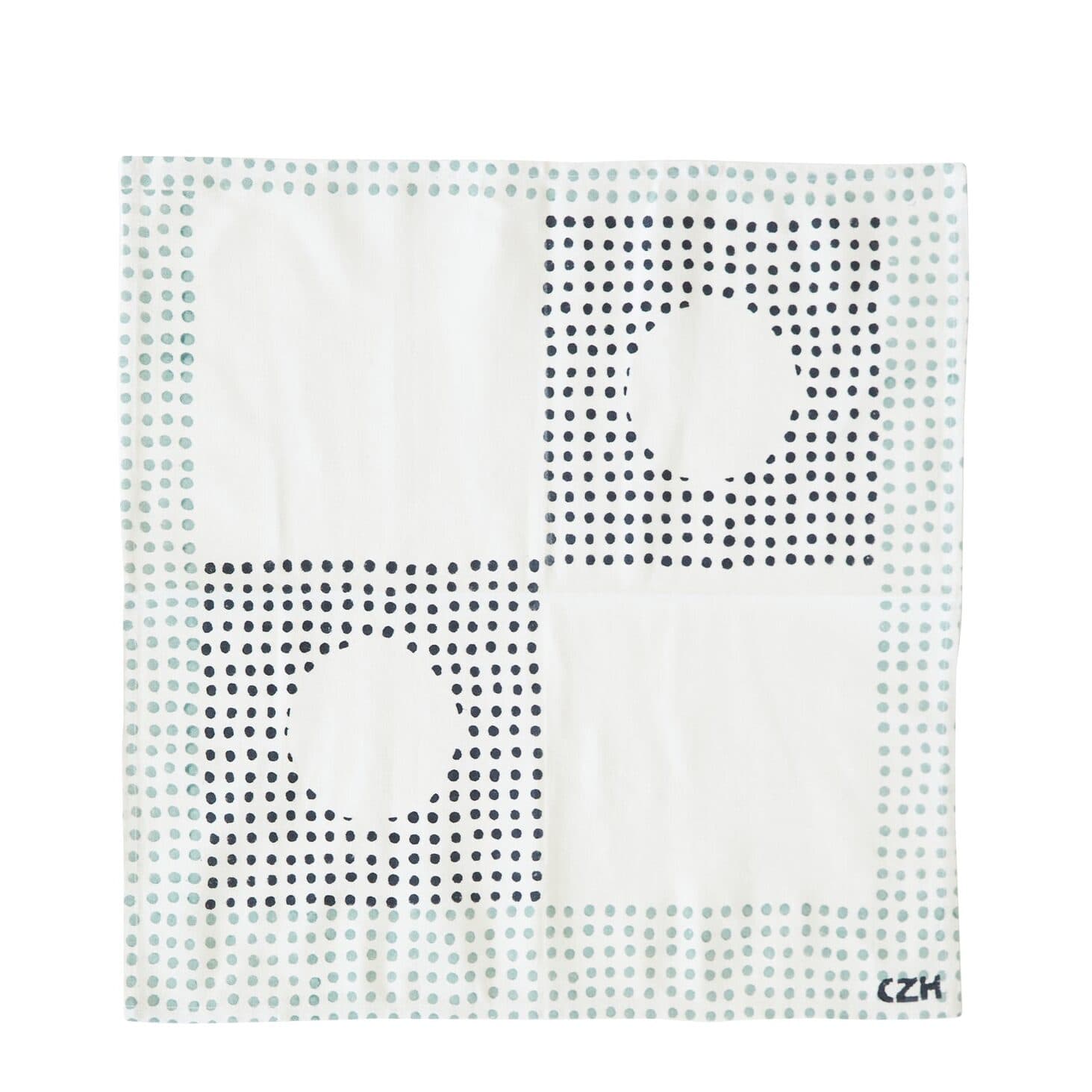
Checkerboard Napkins
$65 for a set of 4, carolinezhurley.com
-
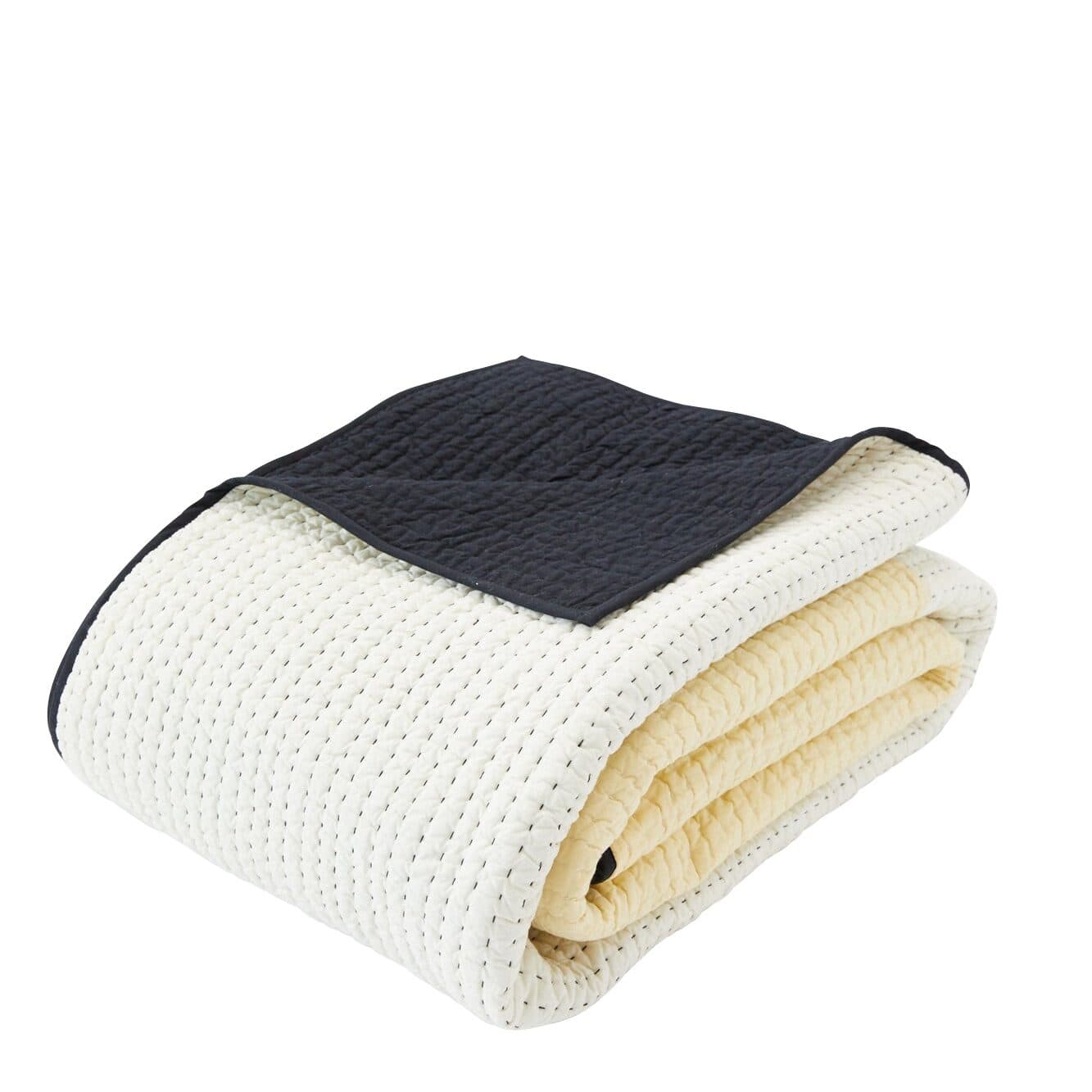
Large Golden Horizon Quilt
$276, carolinezhurley.com
-
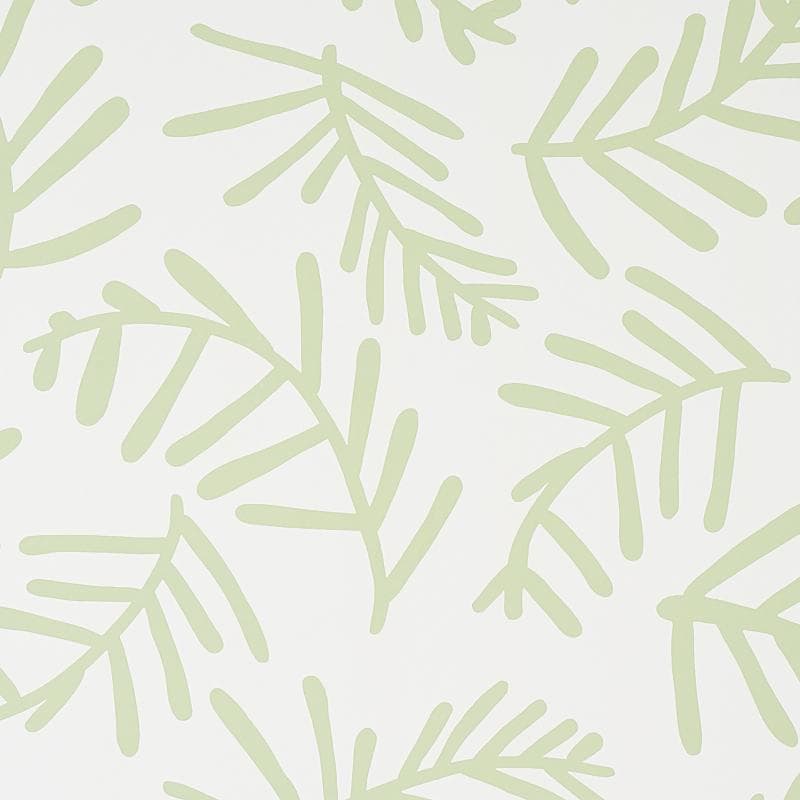
Tiah Cove Wallpaper by Caroline Z Hurley for Schumacher
$378 per roll, chairish.com

